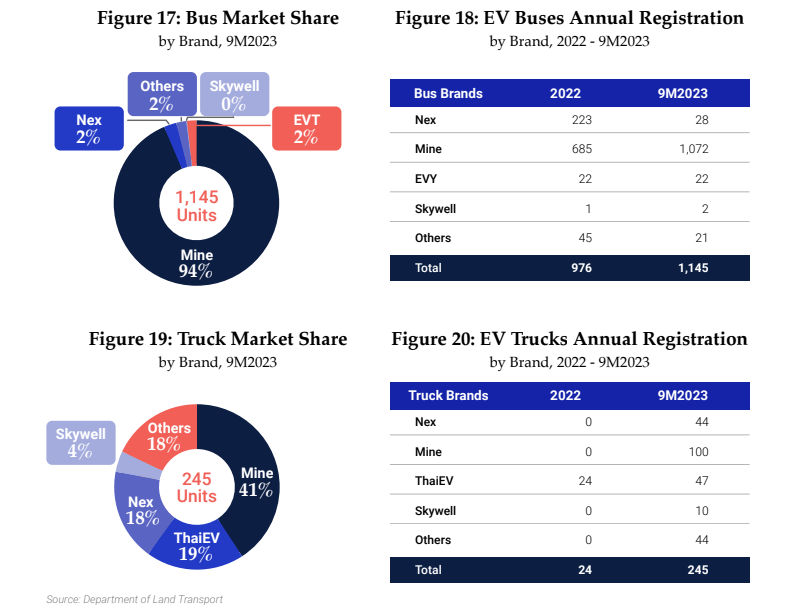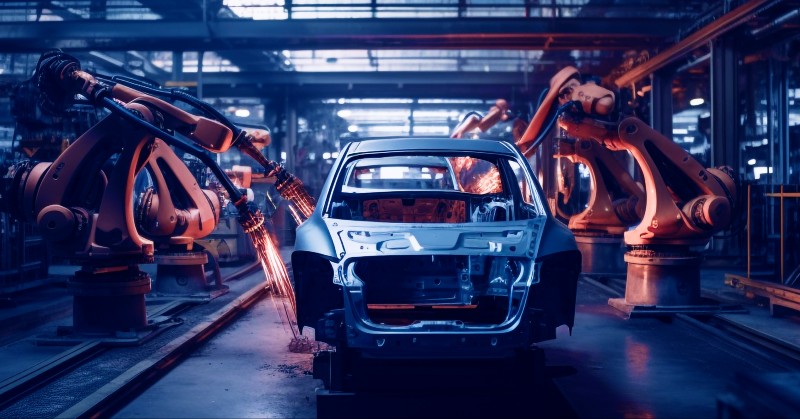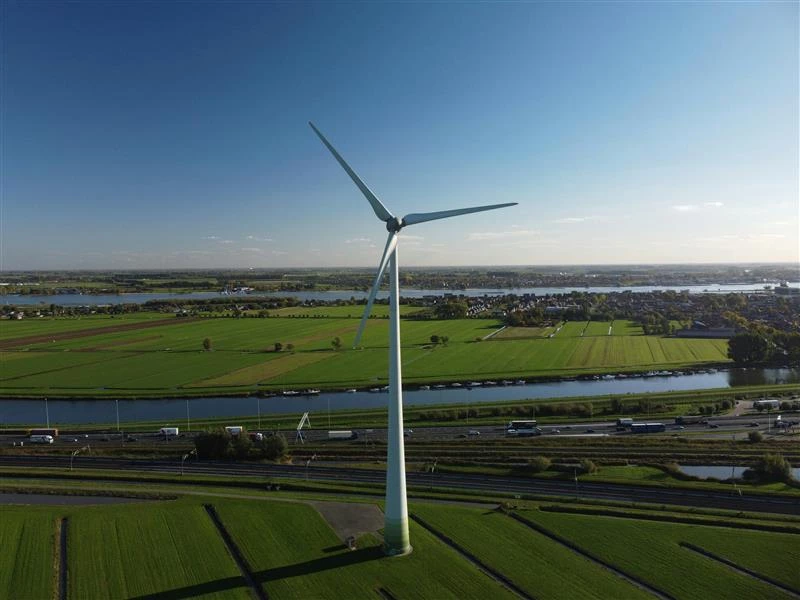The growth in demand and adoption of electric buses and trucks in Thailand reflects a significant shift towards sustainable transportation solutions. This trend is driven by multiple factors, including government initiatives to reduce emissions and promote greener transportation options. Additionally, global trends toward sustainability and the need for businesses to lower their carbon footprint have contributed to the increasing interest in electric vehicles (EVs).
Expanding EV Truck and Bus Adoption in Thailand
As of September 2023, there has been a notable increase in registrations for electric buses and trucks in Thailand. Regarding the EV bus market, electric bus registrations have risen by 17%. This indicates a growing preference for eco-friendly public transportation solutions. It is also supported by the government's initiative to convert public transport buses to electric fleets has significantly boosted the adoption rate of EV buses. This effort has resulted in a remarkable increase in adoption, from 9% in 2021 to 42% in 2022.

In terms of registrations, electric trucks also surged a remarkable 920%, highlighting the potential for EVs in commercial logistics and delivery operations. However, in contrast with EV buses, the adoption of EV trucks has been limited until 2022 due to various challenges. Factors such as high upfront costs, concerns about the trade-off between range and payload capacity, and limited availability of charging stations have hindered widespread adoption.
Local players like Nex and Mine dominate the electric bus market in Thailand, holding over 90% of the market share. These brands have successfully supplied electric buses for fixed-route transportation, especially in urban areas like Bangkok, where there is a high demand for sustainable public transportation options. On the other hand, the electric truck market is still in its early stages of development, with a smaller number of electric trucks currently in operation. Their operational scope is primarily confined to short routes within urban areas and fixed routes, primarily due to constraints related to range limitations.
Challenges such as high upfront costs and limited charging infrastructure have posed obstacles to Thailand's widespread adoption of electric buses and trucks. However, companies are actively exploring the potential of electric vehicles for last-mile logistics and delivery purposes to reduce operating costs and emissions.
Future Outlook of EV Buses and Trucks in Thailand
With government initiatives promoting domestic manufacturing and stimulating demand for heavy EV models, bus and truck operators are expected to gain access to more affordable electric vehicles. This shift will likely make EV adoption more feasible for the heavy vehicle industry, leading to increased investments in public charging infrastructure.
Investments in fast chargers are crucial to support long-haul drives of fixed-route buses and logistics trucks. Establishing fast charging stations near popular rest stops along major routes, especially those covering 700-800 kilometers, presents an opportunity for efficient recharging during breaks.
Identifying rest stops is more complex for trucks due to customized routes and schedules. Collaboration with warehouses or distribution centers can facilitate the creation of charging stations catering to return journeys. Additionally, strategic locations near ports and industrial estates can enhance charging accessibility.
A collaborative approach involving OEMs, bus and truck operators, and charging station operators is essential in identifying strategic charging locations. Prioritizing highly traversed routes and key destinations will optimize the charging network to meet the growing demand for efficient EV charging infrastructure.
To get insight into similar trends emerging in Asia's automotive landscape, subscribe to our newsletter here and check out these reports:
- Dominating SEA’s EV Revolution: The Ultimate Guide to the EV Market in Thailand
- The Implications of Adopting Advanced Driver-Assistance Systems (ADAS) Technology in Electric Cars
- Automotive Lubricants in the Digital Age: Trends and Opportunities for SEA
- Partner Expertise: Exploring China as a Mobility Powerhouse






